This EMD-dominated roster would show a splash of color in later years
Burlington Route diesel locomotives showed a strong loyalty to Electro-Motive Division, located in the online community of LaGrange, Ill. The Chicago, Burlington & Quincy was a diesel pioneer with its Zephyr passenger trains in the 1930s, and the railroad began dieselizing mainline freight trains with EMD FTs in 1943. The CB&Q continuing dieselizing with a large fleet of Fs and Geeps, with most steam locomotives pushed out by 1956. Other than a few wartime Baldwin and Alco switchers, the “Q” was a loyal EMD customer until a group of U25Bs arrived in 1964; it then purchased modern diesels from both EMD and GE until the 1970 Burlington Northern merger.

The first diesel passenger units were articulated with their trains. Later engines, like Burlington No. 9905 (with one of the original Twin Zephyrs) were separate locomotives but retained their trains’ unique styling. Jim Seacrest collection


Burlington ran three nameless locals between Kansas City and Omaha each way per day. Slant-nosed E5A 9915B has arrived from K.C. on-time at 2:30 p.m. with train 27. J. David Ingles photo


The E5, unique to the Burlington, had stainless-steel sheathing with corrugated fluting on the lower sides. EMD photo


Two Burlington Route E units are ready at the Omaha, Neb., station platform to depart at 5:20 p.m. on mail train 14. Lead unit is an E7 while the trailing unit is an E8; note the differing grilles. J. David Ingles photo


The SW1000 introduced a new cab design and higher-level running boards. EMD photo


Burlington Route No. 153 is an F2, which uses the same body as early (Phase I) F3s. EMD photo


The winterization hatch (the boxy housing on the roof above the radiator fans) and extra headlights on this Burlington GP7 were buyer options. This Geep does not have dynamic brakes. CB&Q photo


As piggyback cars of the westbound Rock Island freight pass in the background, Burlington SD7 400 (in the new “Chinese red” livery) and SD9 437 head east with a transfer run through Omaha. J. David Ingles photo


The blower-housing bulge behind the cab identifies Chicago, Burlington & Quincy No. 503 as an SD24. The nose is slightly taller than the hood behind the cab. CB&Q photo


A GP20 and GP30 lead a freight westward out of Chicago on the three-track “racetrack,” a popular topic in Burlington Route history The year is 1965, the scene is Brookfield, Ill., and merger with Great Northern and Northern Pacific is still five years away. Ed DeRouin photo, Lake States Railway Historical Association collection


Burlington’s Twin Cities transfers out of Dayton’s Bluff yard in St. Paul were the province of m.u.’ed trios of NW2s, members of a class delivered as TR2 cow-calf sets. Only the lead unit has been renumbered for the new Burlington Northern in this May 1970 view. J. David Ingles photo






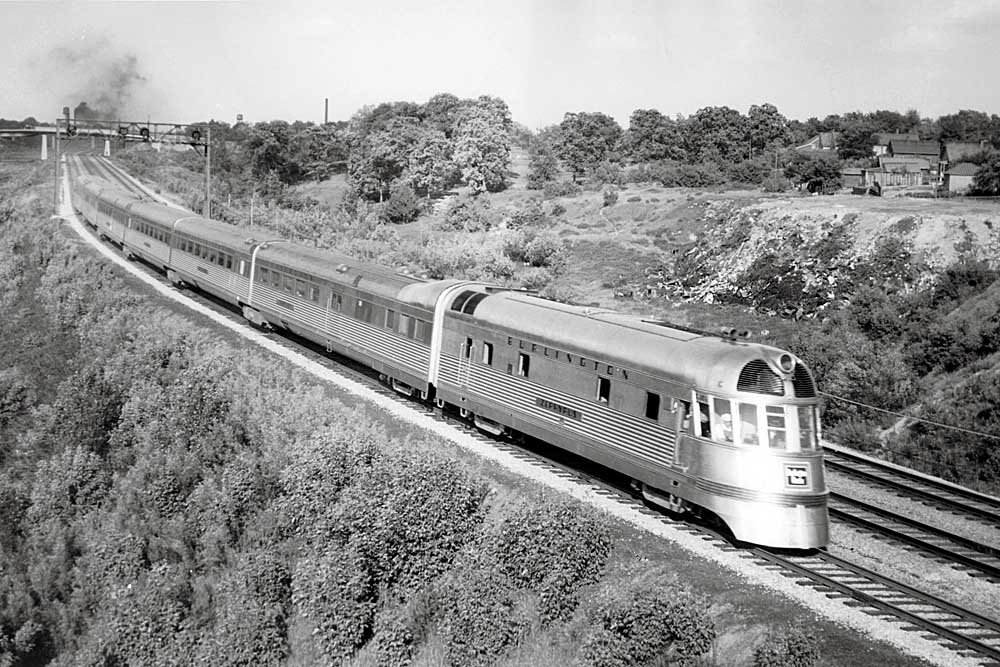

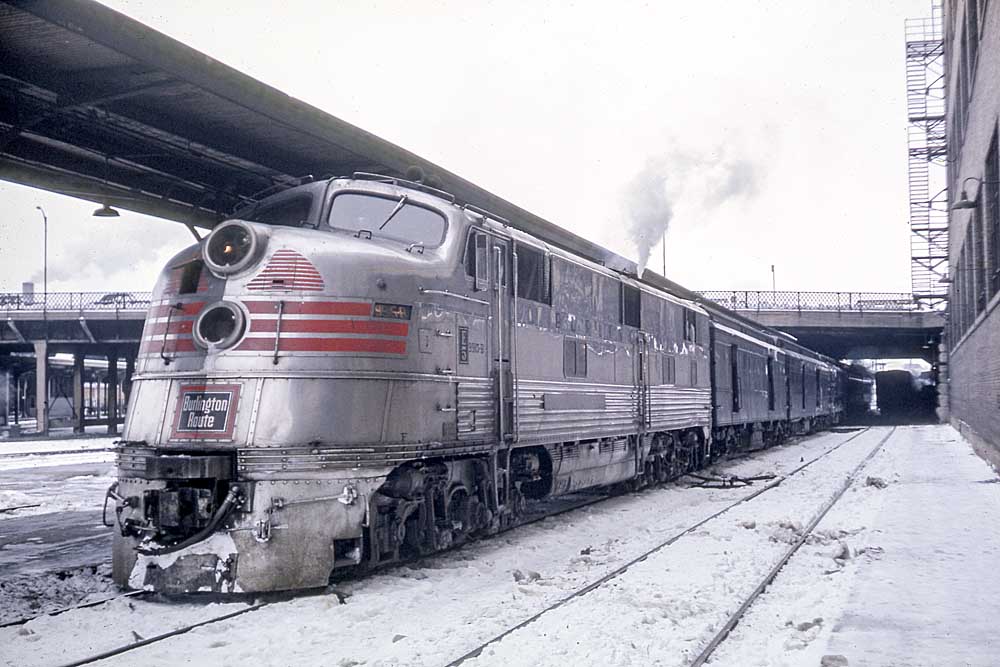

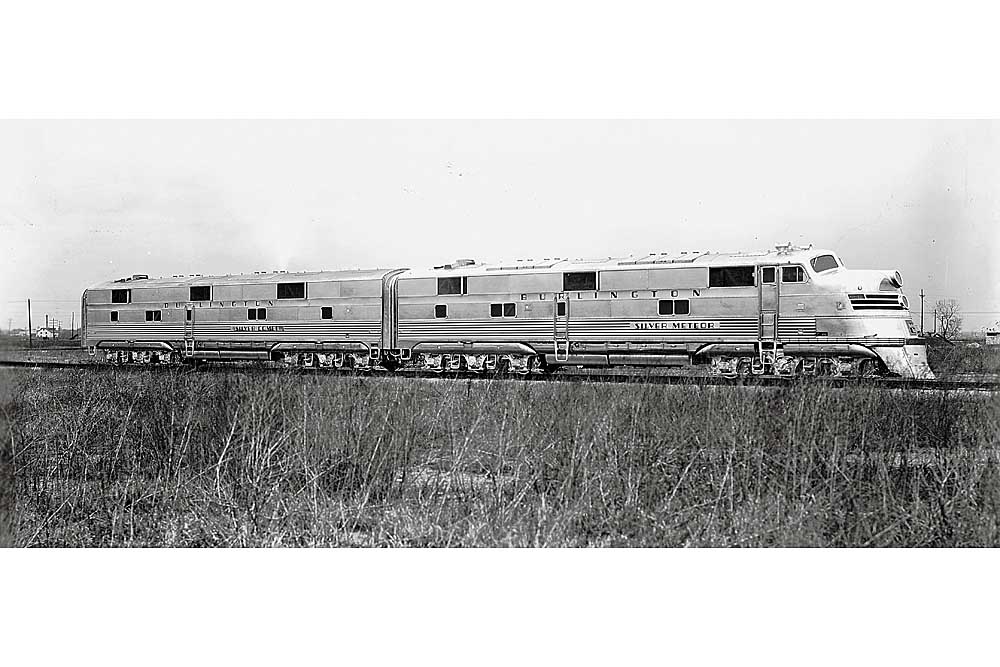

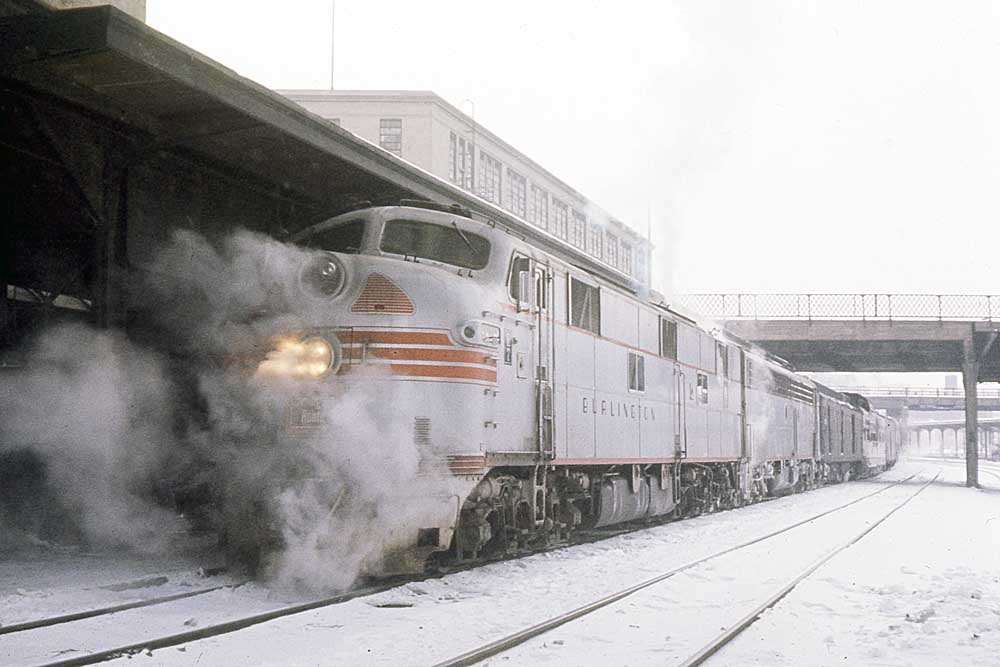

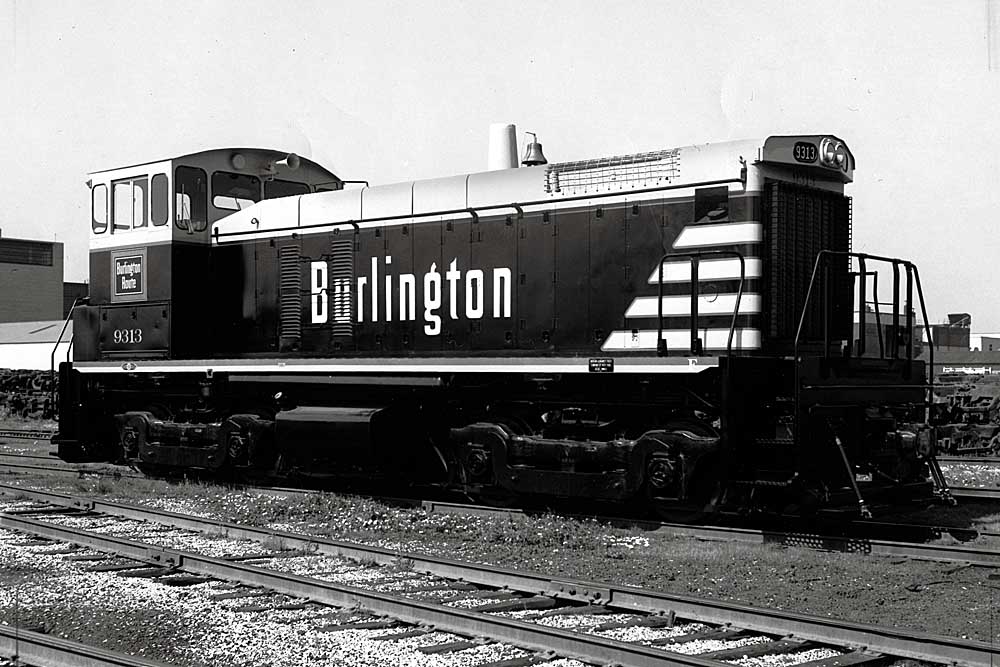

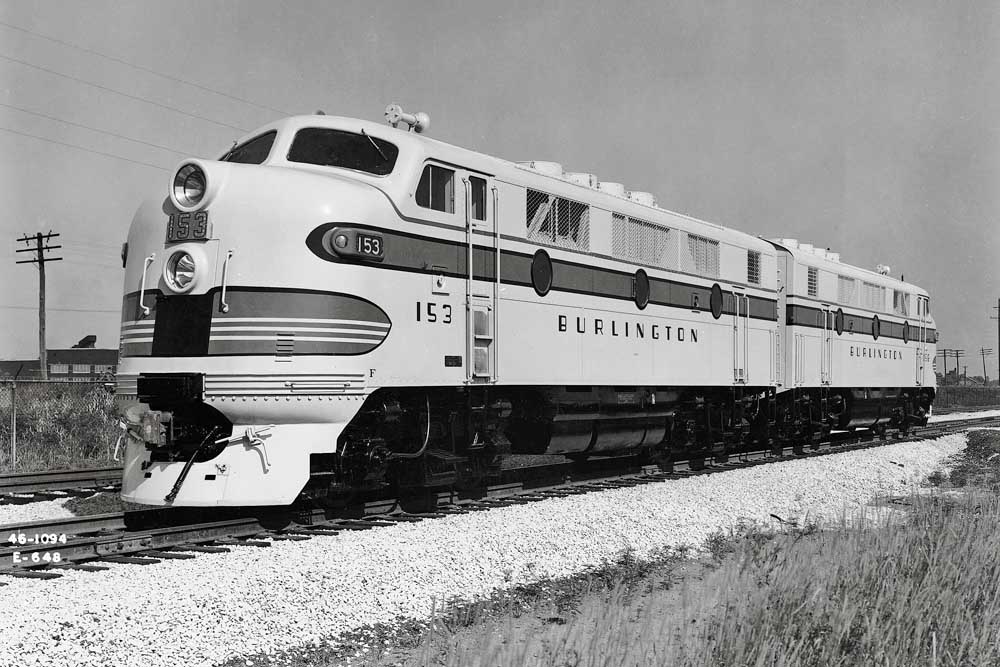

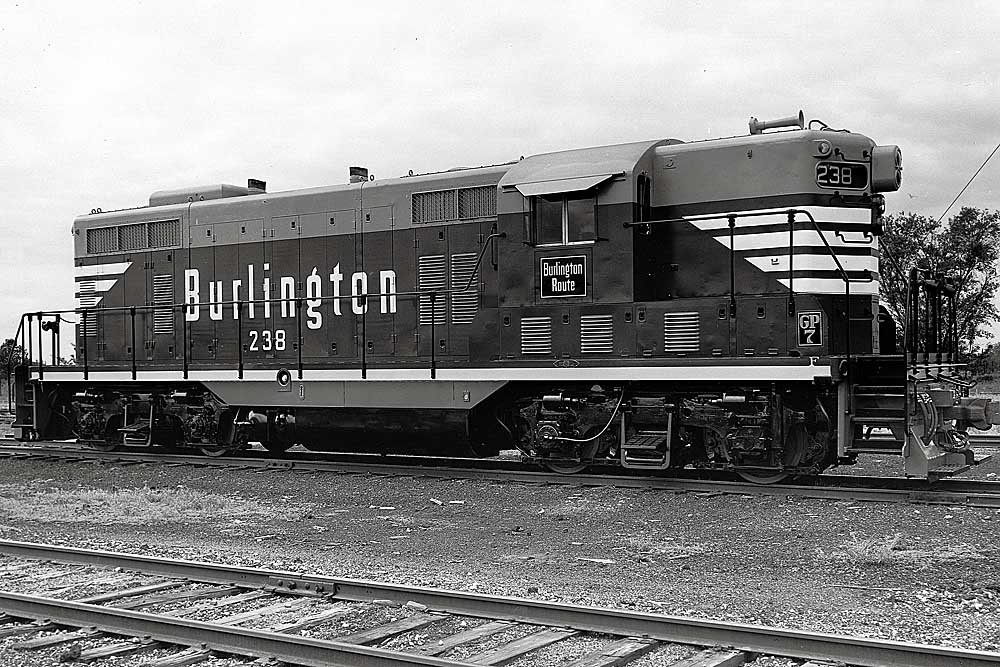

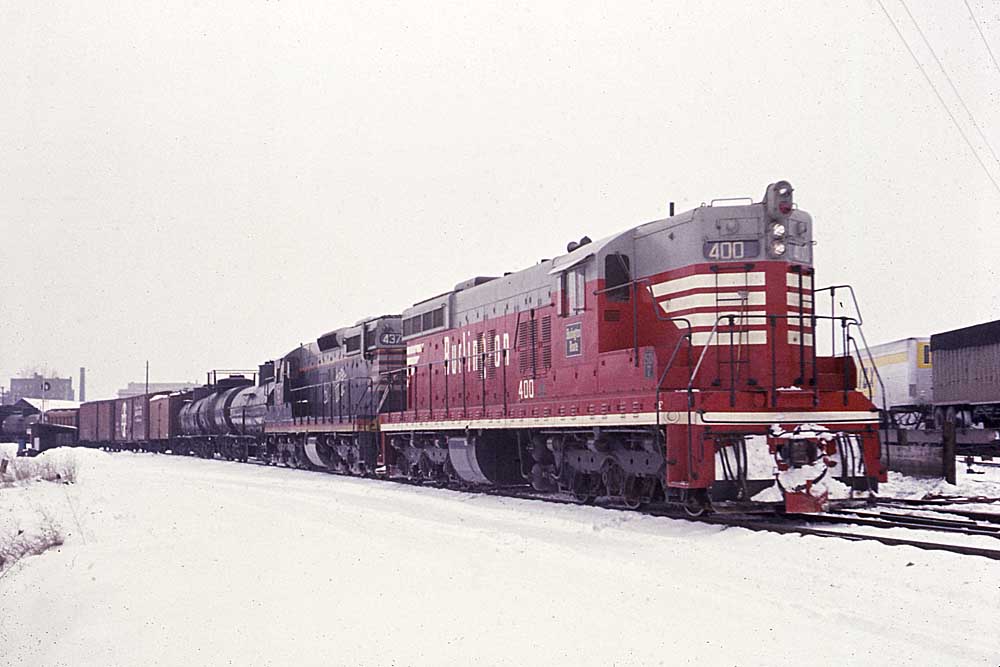

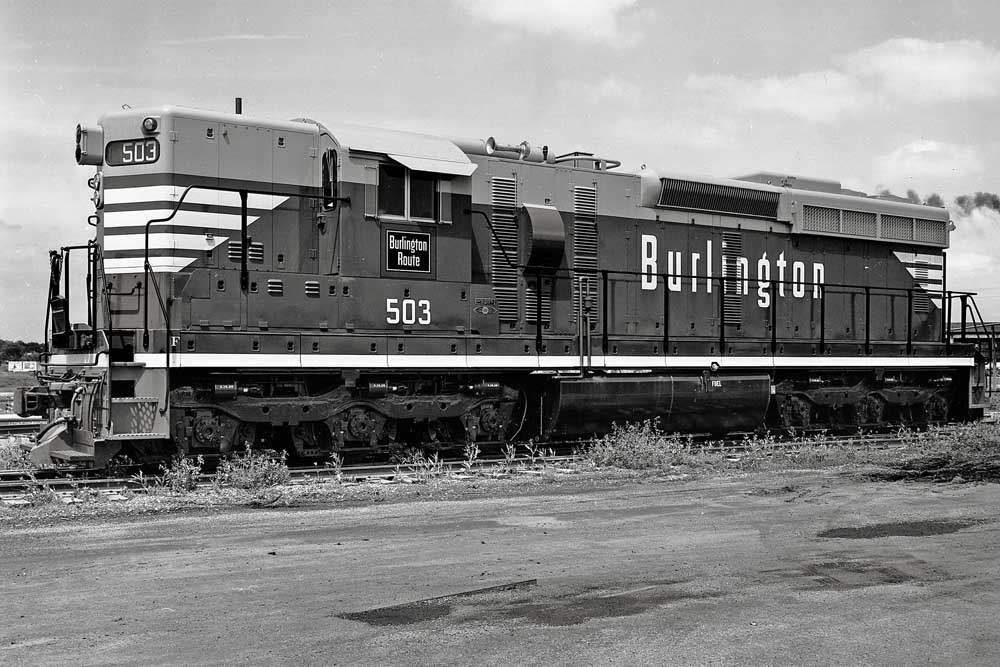

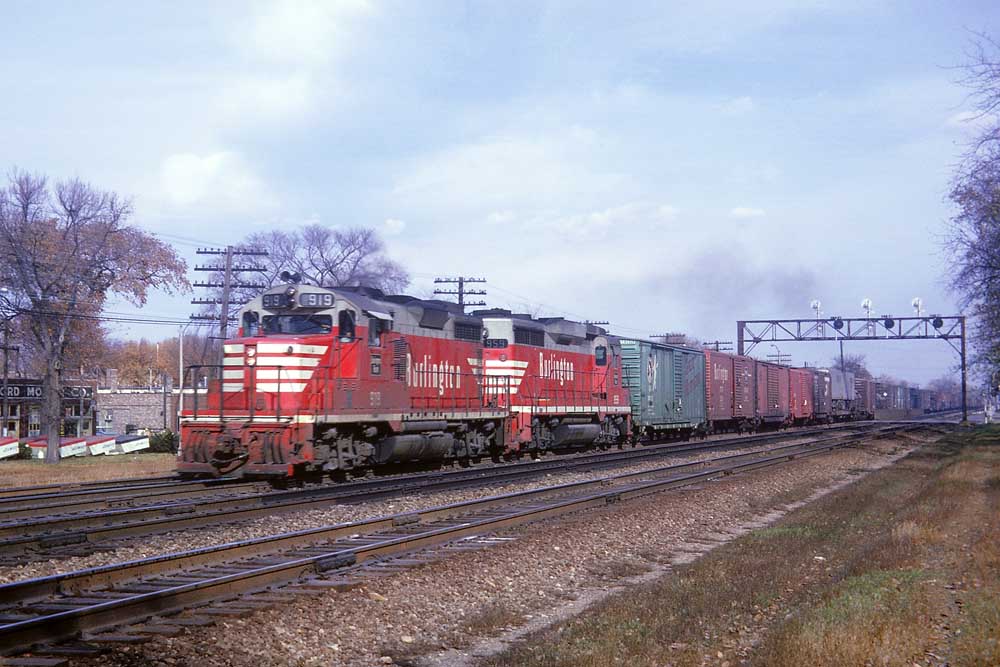

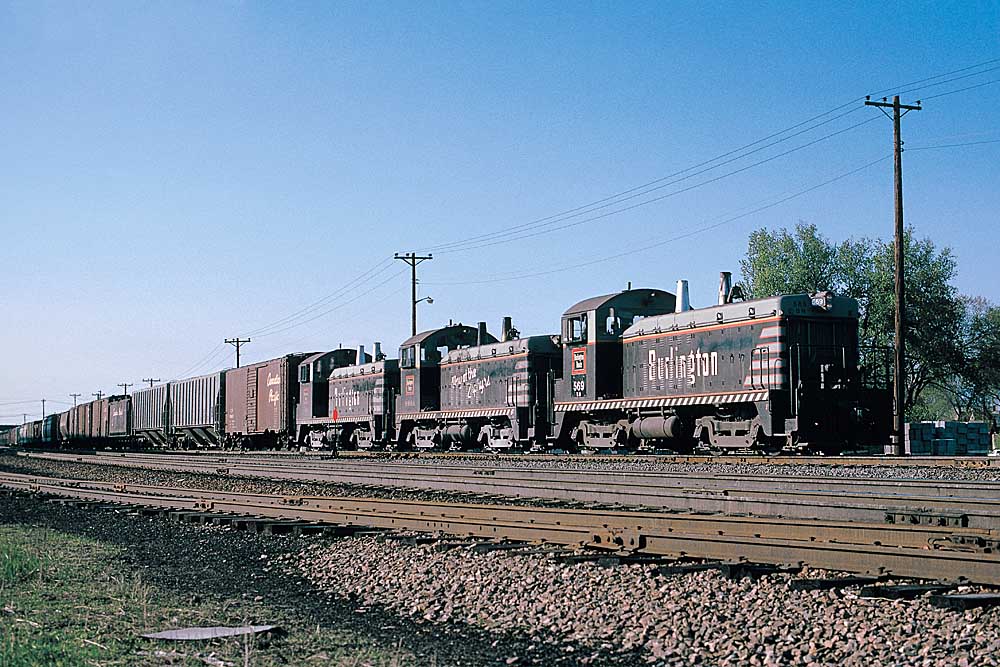


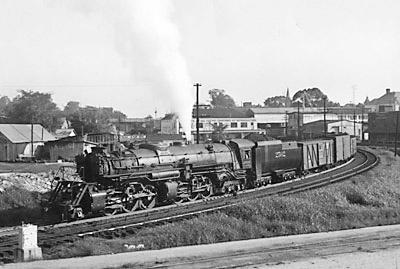
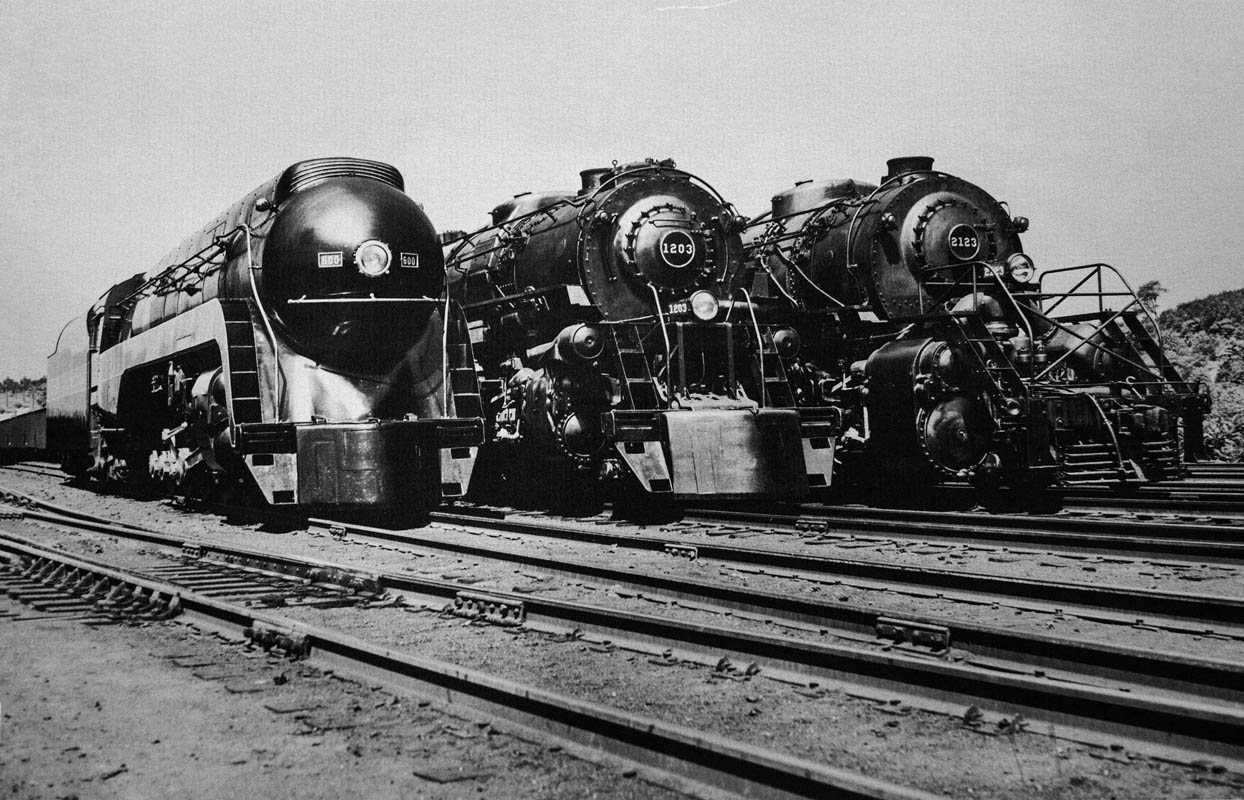
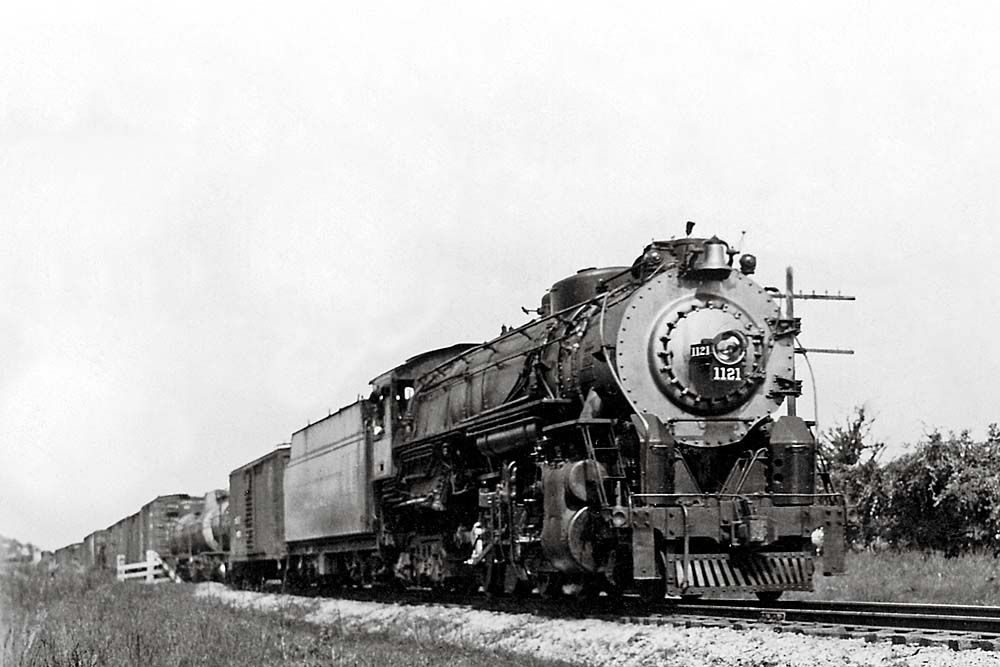
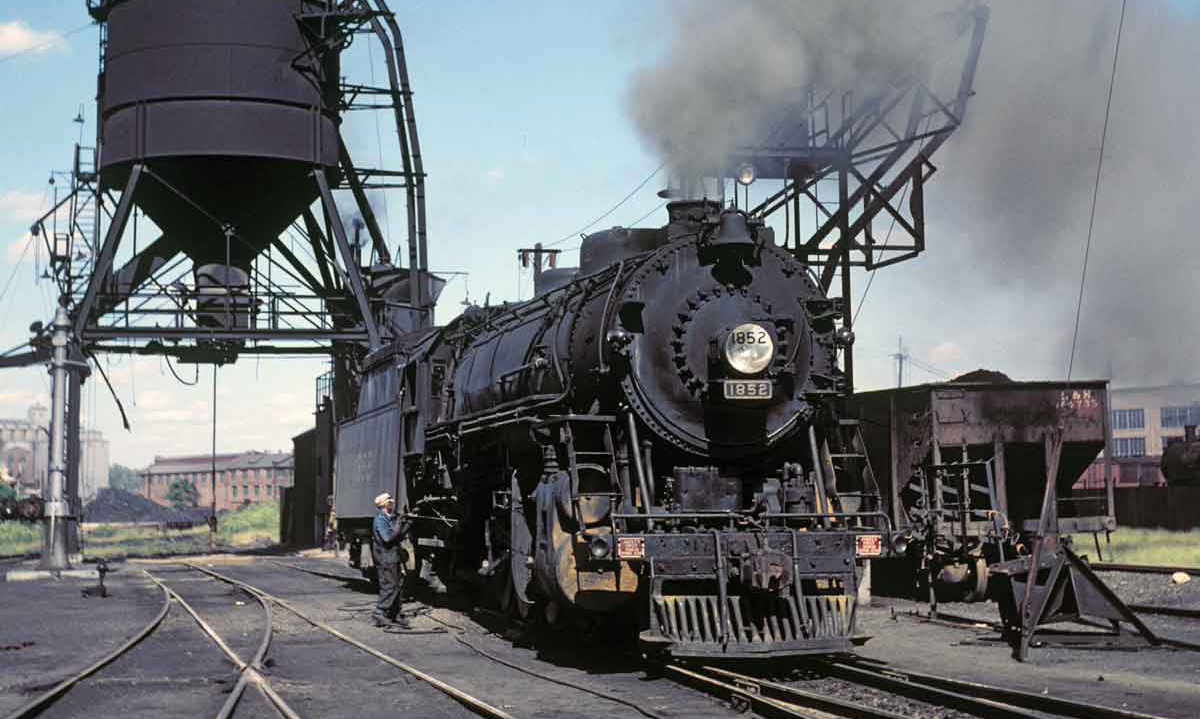

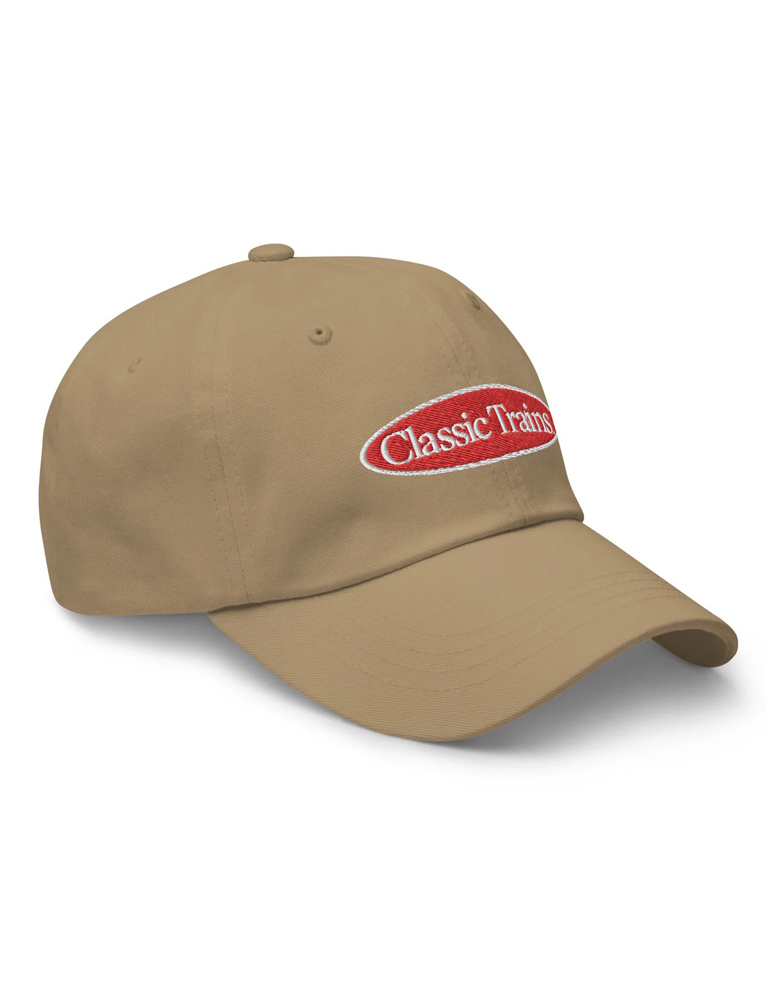
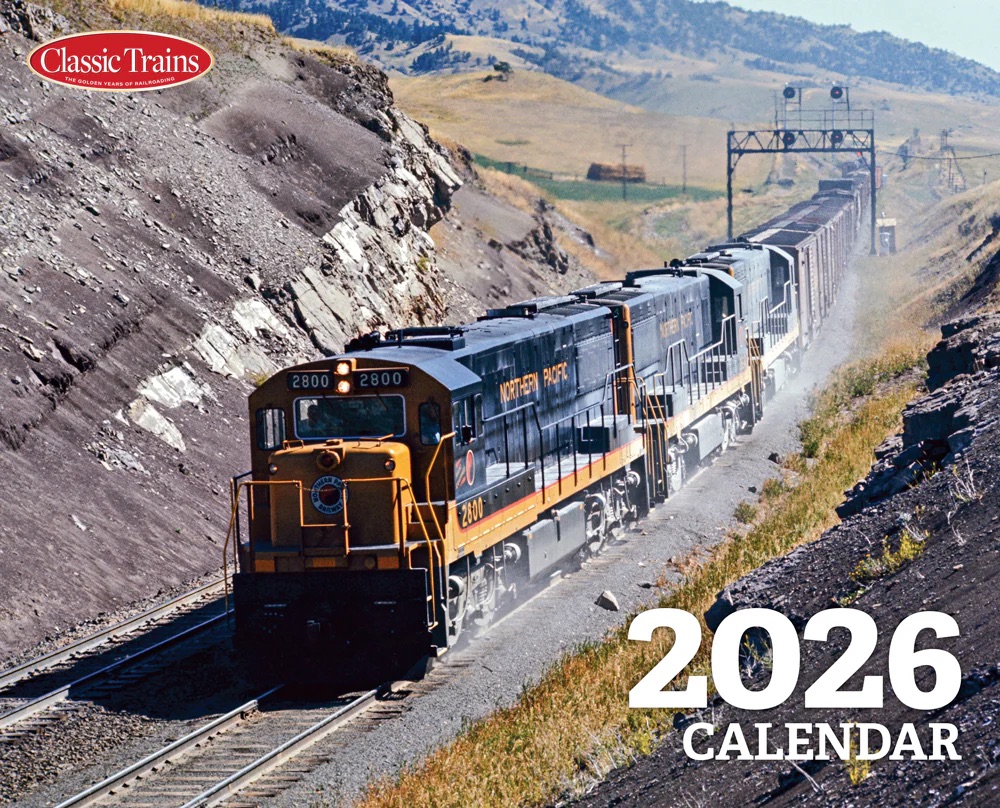

In the caption for the photo of Twin Cities Zephyr 9905, it and its sister 9904 were actually the second TCZ train sets on the route. The first were three car Zephyrs, 9901 and 9902. They were similar to the original Pioneer Zephyr, but did not have a mail compartment.
While the builder’s plates and advertising for EMD usually said “LaGrange”, the EMD plant was (and what is left still is) in the Village of McCook, Illinois. The LaGrange Post Office and zip code (60525) serves a number of small surrounding communities that didn’t have their own post offices. So back in the days before zip codes, mail would be sent to LaGrange.
The last livery of the CB&Q wasn’t just “Chinese” red. The Burlington called it “Chinese Vermillion” red to highlight the rich, deep shade of color, with gray trim and white block letters that last graced their diesel locomotives before merger with the Northern lines of Jim Hill. The livery continues to live on, just as in the pictures of SD-7 #400 and SD-24 #503, on the Bloomer Connecting Railroad, or “Bloomer Line” in Illinois, and as depicted in the video herein: youtube.com/watch?v=nEF8dfWG7rU